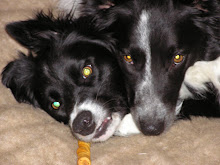In yesterday's post, I mentioned a discussion I had with a friend regarding Moll Flanders repeatedly abandoning her children to the care of others. Quite a few readers here had some comments on the topic, too! Upon further reflection and discussion, I proposed that considering Moll's situation and her professions of prostitution and thieving, perhaps the children were much better off where they were rather than with her. She always expressed affection for the children she bore and always made sure as she could that they were going to receive good care. Many times, she wanted to be able to see them, but did not want them to see her or to know she was their mother. Because she never knew whether or not she would be able to find a husband/protector or how she was going to survive, I believe it was not selfishness that made her leave her children but love and concern that they have the opportunity, however small, for a better life than what she could offer them.
That, in turn, led me to these questions: Picture yourself as a woman suddenly alone in the 1700's with either no or very little means of support. Could you permanently leave your child or children to be raised by another family if you knew it would spare them a life of severe poverty and misery? What if that child was a brand new baby? What if the child was older, say four or five or more?
Does seeing through Moll Flanders eyes give you any potential insight into the feelings of a parent giving their child up for adoption in modern times? Or is that a completely different scenario?










9 comments:
Knowing that her children would be better cared-for where she left them makes it seem a good decision to me. I suppose there weren't any means of contraceptives for women back then?
Jeane ~ That may have been one of the first questions that came to all of our minds! :-) I'm certainly no expert, but I would think that means of contraception back then were pretty unreliable or possibly even dangerous.
A History of Contraception (http://www.orthoevra.com/orthoevra/assets/history_of_contraception.pdf) had this to say about pre-19th Century contraception:
In the book of Genesis, men are called on to practice coitus interruptus (the
withdrawal method).
Around the world, women in different cultures adopt their own
contraceptive concoctions:
- The Chinese drink mercury (now known to be toxic)
- Greeks consume diluted copper ore
- Italians sip a tea of willow leaves with mule’s hoof
- Africans drink gunpowder and camel foam
- Canadian Indians ingest alcohol brewed with dried beaver testicles
In the 1700s, the infamous lover, Casanova, describes his use of an empty rind of a half lemon as a primitive cervical cap to prevent pregnancy.
Dried beaver testicles? Yikes! :-)
Lezlie
That's an interesting list of contraceptives. Thank goodness we don't have to deal with dried beaver testicles these days.
I can see where the character is coming from. If you really love your children, you want what's best for them. Either choice in that situation is hard.
--Anna
Diary of an Eccentric
Anna ~ Or the "camel foam". I shudder to contemplate exactly what that might be. . . :-)
The fact that a man wrote this book might account for the flippant manner in which some of her leave-takings may appear to some readers. (That's is purely a woman's prejudice speaking.)
Lezlie
This isn't a direct answer to your question, but books like this make me so grateful for the choices we have as women today in all areas of our lives. There may be more progress to be made, but we have so much more power over the direction in our lives than these women of the past that we read about in books like this, Pride and Prejudice, House of Mirth, etc.
Shelly ~ Exactly! We find it easy to say that we would never make the choices some of the characters in our books make, but, as Joanna stated in yesterday's comments, that is a stance taken from our safe distance. I spend a lot of time wondering what I would do if I were faced with even half of the difficulties women faced back then!
Lezlie
Um, what is camel foam? Or do I even want to know?
Well, having no children of my own, I will, of course, respond as though I know exactly what I'm saying. I'd like to think that I would always do what was best for my children to make sure they had the best life possible, even if that meant being separated from them. So, I think I WOULD have been willing to give them up, and I hope I would have had some secret way to observe them to make sure they weren't being abused. (However, I also have a feeling that those in the seventeenth century had a much more pragmatic and less sentimental feeling towards children than we do, since so many died before reaching adulthood, so let's hope I would have been an enlightened mother).
Jeane ~ I don't know either. In this case, I suspect ignorance is bliss. :-)
Emily ~ :-) You may well be right about parents being less sentimental about children back then out of emotional necessity. But, like you, I don't have children, so that's easy for me to say.
Lezlie
Post a Comment